

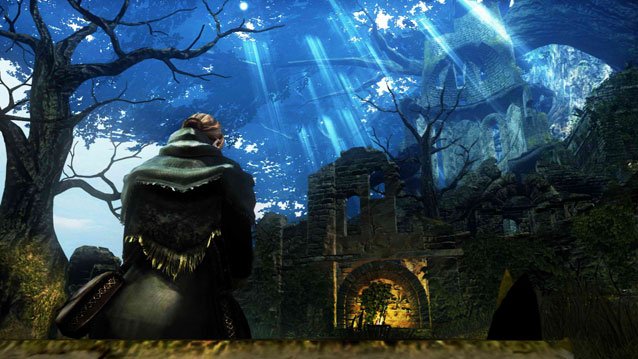
…over.
For instance, I have my run through Dark Souls’s Undead Burg and Parish plotted perfectly. From the bonfire in the burg, I sneak out and axe the sniper in the back before taking out the two soldiers on the stairs with my short sword. I cross halfway across the bridge to lure out the next soldier before rolling back to avoid the firebombs. Parry his thrust; leap forward with two thrusts as a counter attack.
And so it continues from the bonfire to the spiral staircase leading up to the castle wall where once the giant demon had me blocked. But I defeated it, eventually, and now my path continues uninterrupted all the way up into the Undead Parish—where other, more powerful beasts still block my path. Instead, I run this path between the burg and the parish over and over. I know where every enemy is, precisely how to take out each one with minimal damage to my self. I run the gauntlet then return to the bonfire, rest to respawn the enemies and my health potions, and do it again. And again. And again. I stab with my short sword, parry with my shield, swing double-handedly with my battle axe.
But the repetition does not mean I can stop thinking. Every single enemy on this path can kill me and, at one time or another, every single enemy on this path probably has killed me. Sometimes, in my rush to gather more souls, I jump in to attack too swiftly and find myself deservingly impaled. Then I die. Return to the bonfire. Respawn. And do it again.
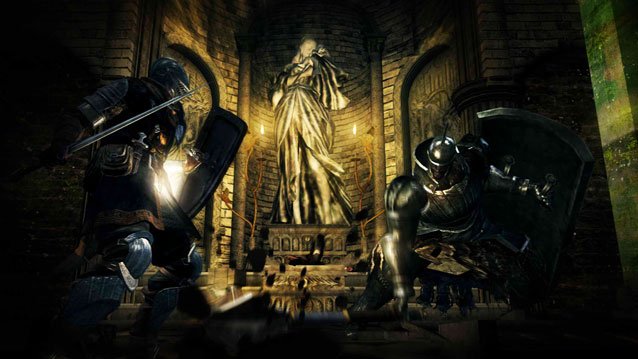
It’s grinding, right? I cant beat the next boss so I fight the same enemies over and over and over trying to collect a few more souls so I can grow that little bit stronger and afford equipment that is a little bit better. As someone who never played the preceding Demon’s Souls very much, this alarmed me. In all the accolades people shower on these games, the fact you spend the majority of your time grinding to get anywhere seems to go unmentioned.
Yet, as I grind, it never feels like a chore. Despite walking over the same paths enough times to leave smoothed footprints in the cobblestone, I never really feel like I am repeating myself. I am always progressing. Or, conversely, I never was progressing in the first place.
This is partly due to how Dark Souls trains the player. Leveling up your character is secondary to leveling up yourself. The game teaches you very little about what your character is capable of or how you should act in battle, and you must figure out the intricacies of counter-attacks, defending, parrying, and the like for yourself. At first, on my path through the Undead Burg, I could hardly hope to make it through all the enemies alive. Now I can do it without being hit once. Not because my character has gained experience—because I have.
But whether I’m training myself or my character, it’s still grinding. I think there is something else at play in Dark Souls that makes this most taboo of play styles not only acceptable but engrossing. Something more than personal training. Specifically, I think it has something to do with how Dark Souls treats time. Or, more specifically, how it doesn’t.
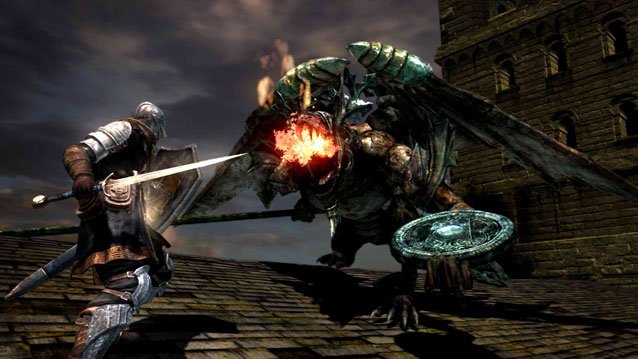
Dark Souls does something weird to time, to temporality. Unlike most games, ‘when’ you are has no correlation to ‘where’ you are. That is not to say there is time travel in Dark Souls. Rather, the opposite: there is no time in Dark Souls. This is Limbo. Purgatory. The world of Dark Souls is as undead and between-worlds as its occupants. It’s stagnant.
You get this in the gameplay already outlined above. You rest at a bonfire, and enemies respawn; you die, and you respawn at the bonfire sans all the souls you were carrying, but you can travel to where you died and retrieve your lost souls. In most games, character-death means rewinding time and rejecting any effort the player put in between the last checkpoint and the death. Some games, though, manage to give this feeling of constant progression even after the character dies. In Braid, by controlling the rewinding of time itself, the player’s input still feels as though it is constantly progressing. In Grand Theft Auto IV, you don’t “go back” to the hospital when you are wasted; you go forward; you still used up your ammo, day still turned into night. In Dark Souls, you did die, your bloodstain and your souls are right there where it happened, undeniable.
But more than this is the world of Dark Souls and its sparse characters. The overgrown forests. The crumbling ruins. The undead towns. I can’t believe any of these places were ever any different than they are now. Undead Burg was never a populated village; it was always a zombie-infested ruin. Everything—everyone—is as it always was and always will be. A knight sits contently in front of a giant gate, waiting for it to open. You can’t help but think he has been sitting there since before time began. Another knight tells you he is taking a small break—he never moves on. The blacksmith bangs his anvil at a stead beat for ever. And ever. And ever.
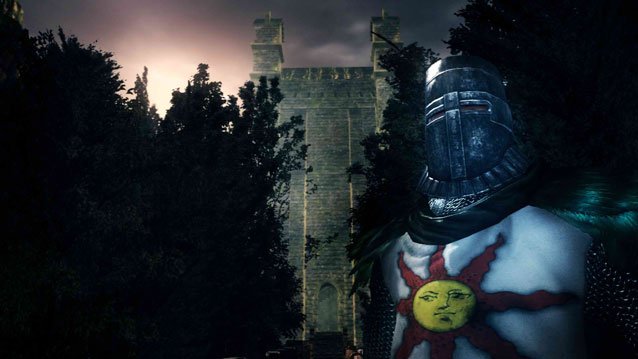
The air itself—the mist hanging between the world and the never-moving sun—has a stagnancy about it. It makes me think of fantasy worlds like Wonderland. It’s timeless in the most literal sense. You stumble across a merchant selling his wares off a rug in the middle of Undead Burg in the way you might stumble across a mad hatter having a tea party. These beings don’t feel like they have day-to-day lives but just this one, endless, eternal, cyclical event. They are doing this thing in the world over and over and over. Not even that. Doing something over and over suggests beginnings and endings. These characters are just doing it neverendingly.
And, well, so are you. Walking over that same path over and over. Sure, you are getting better at it and your character is getting stronger, but you are still doing it over and over. That is the point of Dark Souls, I feel: to be in Limbo, to be just another lost, undead soul wandering a stagnant world.
People have told me Dark Souls is about the journey, not the destination. I think this is more true than they realize. I can’t imagine Dark Souls even has an ending. Partly, this is because story-wise I wouldn’t have a clue what is actually going on or what my goal is. And, partly, because there is little hope of me ever actually finishing it. Even as I progress from one area into the next when I finally defeat a boss, the singular open-world nature of the game steals even a sense of spatial progression away from me. It still feels like I am trapped in the same place, even when I move on. Dark Souls is about the journey. One long, neverending journey.
And so grinding is okay. That is my purgatory. Not just mechanically but thematically. Some souls sells wares off rugs. Some souls drum hammers onto anvils. Some souls run the same paths ad infinitum, defeating the same enemies over and over and…

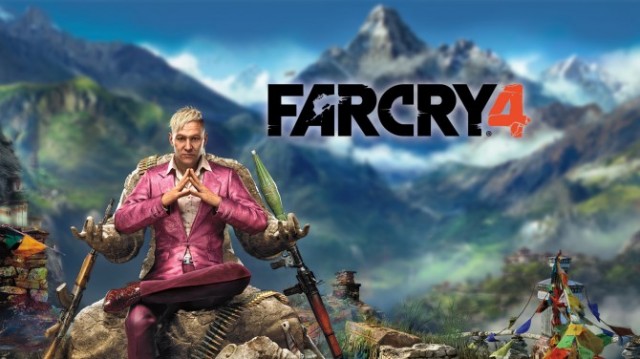
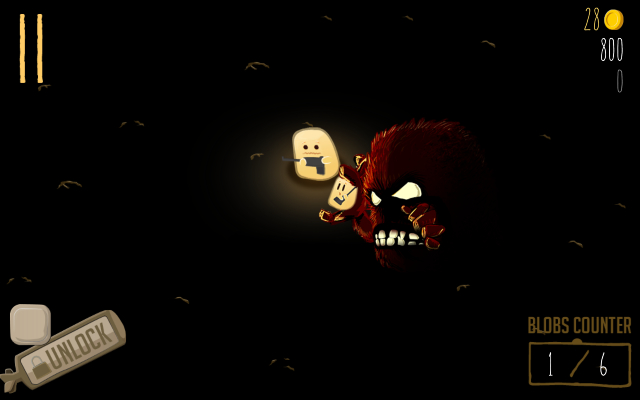
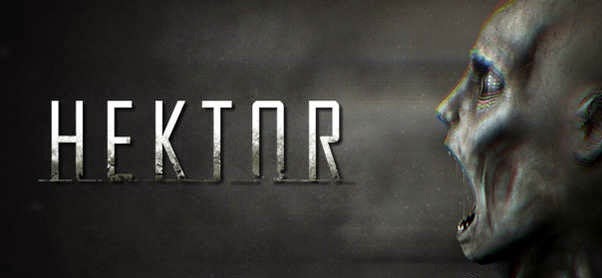
 Review: Chic Buds
Review: Chic Buds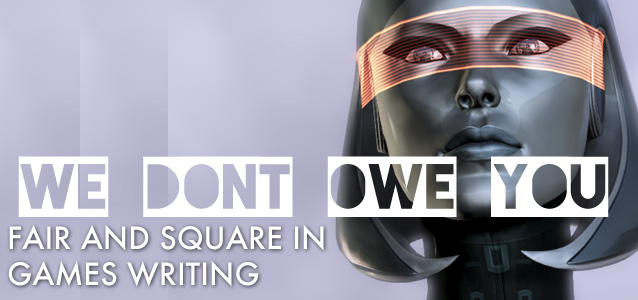 We Dont Owe You: Fair and Square in Games Writing
We Dont Owe You: Fair and Square in Games Writing AC Syndicate: How to Find All Royal Letters (Correspondence) Locations
AC Syndicate: How to Find All Royal Letters (Correspondence) Locations Borderlands 2 Guide – How to Beat Handsome Jack & The Warrior
Borderlands 2 Guide – How to Beat Handsome Jack & The Warrior List of Hollywood Actors who Paid over $ 20 million per film
List of Hollywood Actors who Paid over $ 20 million per film